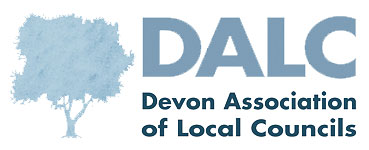All About Local Councils
This booklet has a slightly more urban slant and while aimed at a more urban audience is still relevant as a resource to all local councils. There are two brand new case studies and the booklet gives simplified explanations about the role and work of local councils and their councillors, explains the electoral process and provides a number of case studies highlighting the work of a selection of local councils.
Roles and Responsibilities

The best councils have a clerk and councillors who work as a team, respecting each others roles and responsibilities, working together to serve their community.
Roles and Responsibilities
Everyone in the council has their own roles and responsibilities; councillors and officers have different but complementary roles on the council. Councillors are democratically elected representatives of their communities who set the direction of the council and ensure that the community’s priorities are identified and delivered. Officers have a responsibility to advise the council on whether decisions are lawful and recommend ways in which decisions may be implemented; they are not answerable to individual councillors.
More information
Civility and Respect Roles and Responsibilities Guidance
The Good Councillor’s Guide 2024
Model Councillor Officer Protocol
The Council
Although councillors act as individuals, the Council is a corporate body with a legal existence of its own. Its decisions are the responsibility of the whole body and not the individual councillors.
Councils have been granted powers by Parliament including the power to raise money through taxation (the precept) and a range of powers to spend public money. The activities your council chooses to undertake will be based upon the needs and aspirations of your community.
Parish and town councils have only a few statutory duties compared to principle authorities, and enjoy a greater freedom to choose which action they take using a broad range of powers.
A good council does the following:
- plays a vital part in representing the interests of the community it serves
- improves the quality of life of local people and the local environment
- influences other decision-makers, for example, in planning matters
- delivers services to meet local needs
- works with other groups in the community to develop the community and provide better services to the electors
The Council as an Employer
The law requires that at all times the council must act as a responsible employer. Rules protect your employees and your council.
Council employees, the clerk and other roles, enjoy the full security of the law whether they are full-time or part-time workers, or an employee on a fixed term contract. Employment law protects them in terms of pay, pension rights, annual leave and training. It also protects them from bullying or harassment and discrimination.
For further information, please see our Employment page.
Chairs have a duty to ensure meetings run smoothly and all business is properly considered. Their power to regulate council meetings is derived for councils standing orders. They have few other powers. For instance, it is unlawful for a council to delegate decision making to any individual councillor, and the chair is no different although a chair can use a second, or casting vote in the event a vote is tied.
The chair may also work closely with the Clerk to plan meetings and ensure everyone is adequately briefing and prepared for the meeting..
